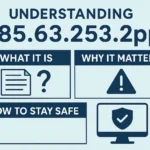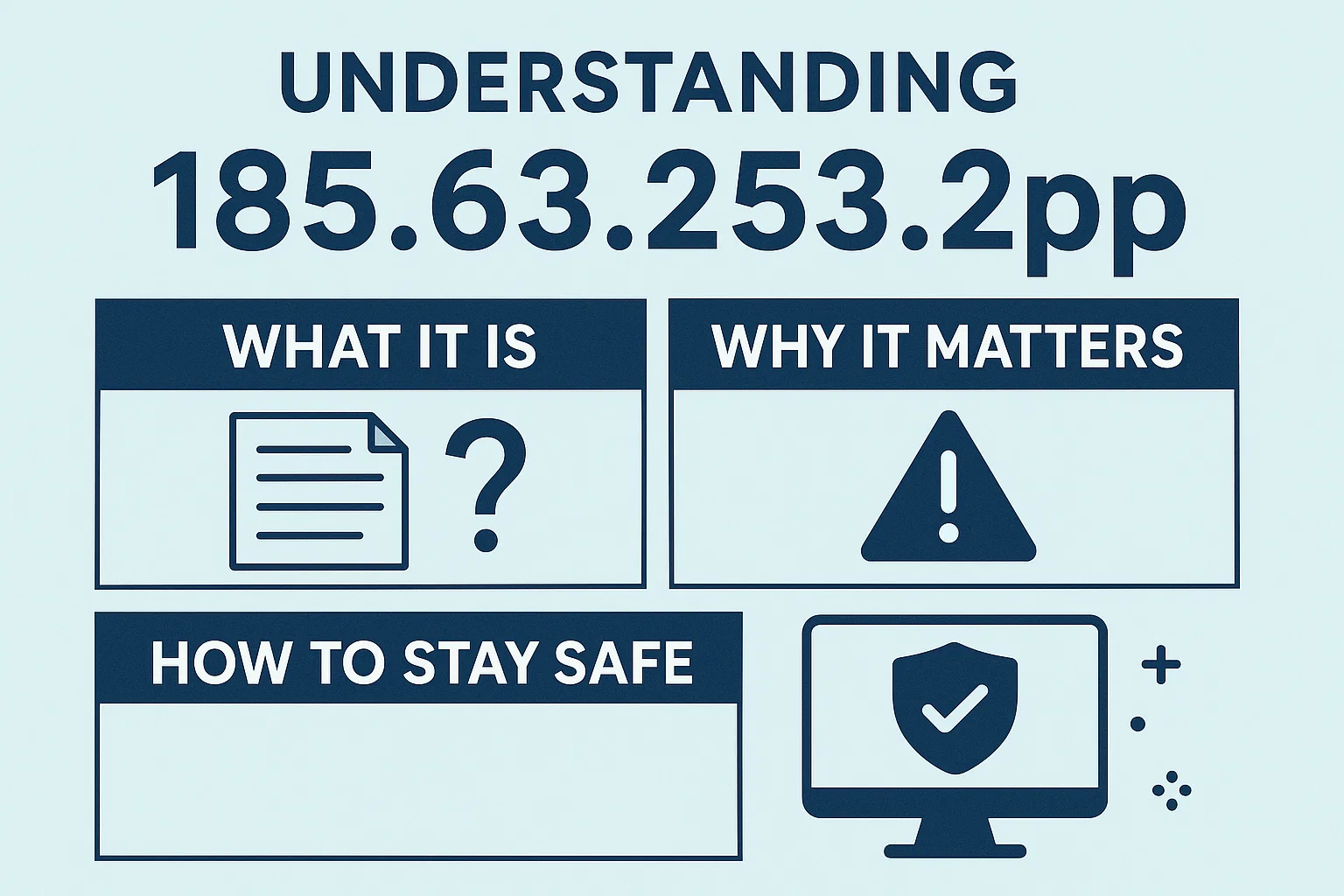In today’s digitally connected world, IP addresses are central to how the internet functions. One term that’s recently gained attention is 185.63.253.2pp. While it may appear as a random string of numbers and letters, understanding its possible significance is important for both casual users and tech professionals. In this article, we’ll explore what 185.63.253.2pp could represent, how it might be used, and what precautions you should take when encountering suspicious or unfamiliar web addresses.
What Is 185.63.253.2pp?
To begin, let’s break down the keyword. The string “185.63.253.2” is clearly an IP address — a numeric label assigned to each device connected to a computer network that uses the Internet Protocol. This specific IP falls within a range commonly used by hosting providers and content delivery networks (CDNs).
The additional “pp” attached at the end is not standard for an IP address. It might be:
- A typo or trick used in phishing links or spam sites.
- A custom notation used in URL shorteners or proxies.
- A subdomain or extension styled in a misleading way.
If you see something like 185.63.253.2pp as a part of a web link or file, it should raise a red flag for further scrutiny.
Is 185.63.253.2pp Safe?
In general, a legitimate IP address will not include extra characters such as “pp.” If you try to access a website with that exact format (e.g., http://185.63.253.2pp), most browsers will either give an error or redirect you. However, attackers often exploit such anomalies by embedding these types of addresses in links, malicious ads, or phishing messages.
The format may be used to confuse users and trick them into clicking links that appear to be technical or safe, especially if they are part of a larger scam or cyberattack.
Potential Uses (and Risks) of IP-Based URLs
Some developers, admins, or services use IP addresses directly to access:
- Web servers without DNS records
- Internal tools or admin panels
- Proxies or VPN tunnels
However, cybercriminals often use raw IP addresses to:
- Host malicious files or malware
- Bypass domain-based blacklists
- Launch temporary phishing campaigns
- Avoid being traced or reported
When you add confusing suffixes like “pp” to an IP, it might be part of an obfuscation technique to hide the true destination.
Examples of How 185.63.253.2pp Might Be Used Maliciously
- Phishing Emails
A hacker sends an email claiming to be from a trusted source, including a button or link likehttp://185.63.253.2pp/login. Clicking it might take you to a fake login page designed to steal your credentials. - Fake Software Updates
Users might be redirected to this URL from a pop-up ad, claiming they need to “update their browser.” Instead, it installs malware or spyware. - Spoofed Redirects in Ads
Some shady ad networks redirect through URLs like this to avoid being blocked, leading users to adult content, scams, or fraudulent investment pages.
How to Protect Yourself
1. Never Click Suspicious Links
If a link includes a strange-looking IP or ends with unfamiliar suffixes like “pp”, avoid clicking on it — especially if it came from an unknown source.
2. Use a Secure DNS or Web Filter
DNS providers like Google DNS, Cloudflare, or OpenDNS can help block malicious IP-based websites automatically.
3. Check the URL Carefully
Hover over links before clicking. A legit site should not have an IP format like 185.63.253.2pp.
4. Install Browser Protection
Tools like uBlock Origin, Malwarebytes Browser Guard, or Bitdefender can stop redirects to shady IP-based URLs.
5. Keep Your Software Updated
Security holes in browsers and plugins are often exploited through malicious IP addresses. Keep everything up to date to minimize risks.
What If You’ve Already Visited 185.63.253.2pp?
If you suspect that you’ve clicked or interacted with a suspicious IP-based link like 185.63.253.2pp, don’t panic, but take immediate steps:
- Run a full antivirus scan
- Clear your browser history and cache
- Change your passwords, especially if you entered login info
- Check for unusual activity in your accounts or system
Final Thoughts
While 185.63.253.2pp might just be a confusing or malformed reference, it could also be linked to malicious activity or security threats. In an age where cyberattacks are common and often subtle, learning to spot suspicious URLs is a basic yet powerful skill. Always verify, never trust blindly, and use proper digital hygiene to stay protected online.










